USPolymath: Tapping on the Intellectual Diversity of the USP Community
By Stacy Ooi (Sociology + USP, Class of 2018)
Stacy is a student writer for USP Highlights.
Published: 23 November 2017
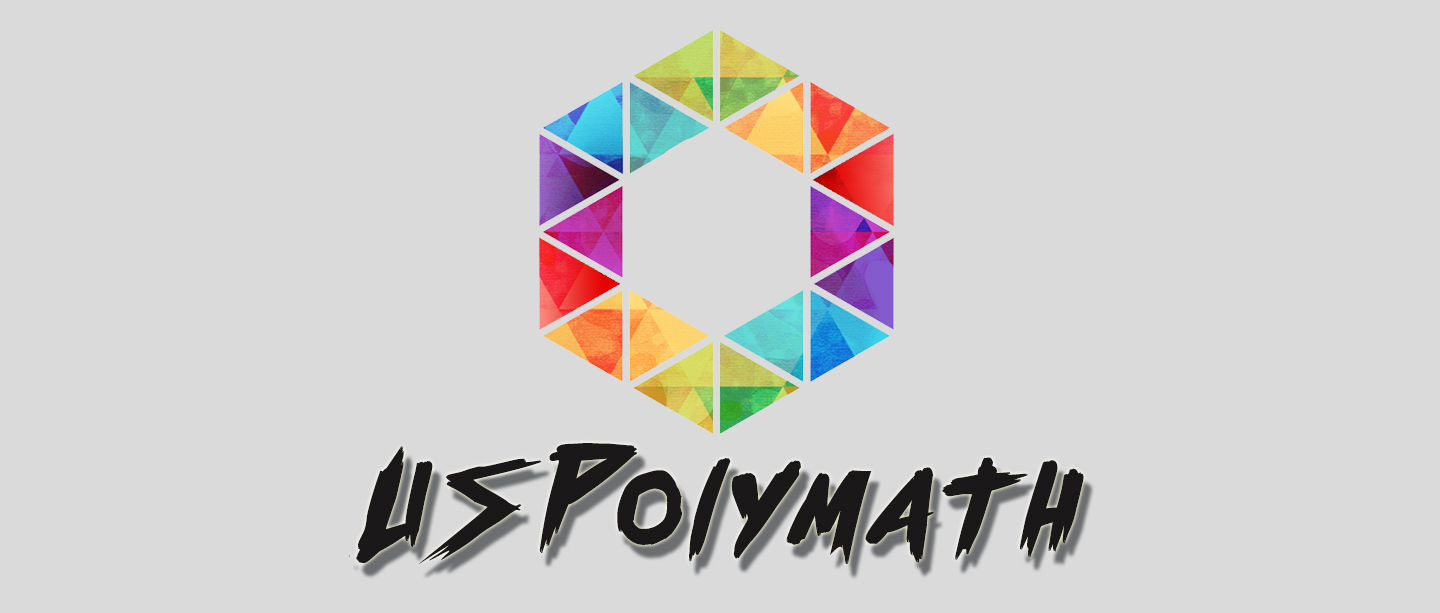
The University Scholars Programme (USP) brims with students of diverse talents, disciplines and interests. What better way to capture this diversity than having a platform for students speakers to share their passions with the community? USPolymath, a student interest group that focuses on delivering compelling ideas through public speaking, serves exactly that purpose. First formed in 2015 by a group of USP students, USPolymath has since gone on to have eleven sessions, averaging about four to five student speakers per session. The most recent session, held on 1 November 2017, was one that I had the privilege of being part of. The goal of USPolymath, according to organiser Darryl Laiu (Philosophy + USP, Class of 2020), is to create a platform where USP students can critically share ideas that they have learnt in classes with the rest of the USP community.
The word “polymath” refers to a person of wide knowledge or learning. The ideal of “polymathy”, being proficient in multiple disciplines – intellectual, artistic, social and physical – was especially celebrated during the Italian Renaissance, where the great Renaissance Humanists believed that human beings are essentially infinite in their capacity for development.
A similar philosophy motivates the USPolymath organisers in their tireless efforts to keep the fire going. USPolymath sessions have spanned a wide range of topics – the principles of gravity, an introduction to Plato’s philosophy, a defense of feminism in Singapore and the effectiveness of anti-depressants are just some examples of the rich brew of ideas that have been articulated over the past eleven sessions.
Besides being passionate about the ideal of learning from multiple disciplines, the organisers also emphasise the importance of social connections in making learning possible. As Auyok Sean (Mechanical Engineering + USP, Class of 2020) says, “There is a quote by Confucius that I believe echoes with the USPolymath ethos. The quote is "三人行,必有我师焉" (sān rén xíng, bì yǒu wǒ shī yān). The quote roughly translates to: "When three travel, one must be my teacher””. The message in this Confucius quote is to be humble and self-aware, to be mindful that everybody knows something that we do not, and hence, to be open to learning from one another. As Sean goes on to explain, “Hopefully, the audience would gain new perspectives on different issues, or even gain new insights into topics they are familiar with. Ideally, the audience will find the presentations thought-provoking and would want to discuss them.”
USPolymath comes with an interesting twist. Instead of allowing speakers complete freedom in their presentation styles, speakers are presented with a specific challenge to overcome. This challenge is called the “Pecha Kucha” format. The format enforces speakers to use only 20 slides, each lasting exactly 20 seconds. The timing is built into the presentation by setting the slides to automatically transit. Thus, once a Pecha Kucha presentation starts, the presenters have no control over when the slides change. With such a restrictive format, speakers find it challenging to synchronise their speech to the slides.
The rationale behind the Pecha Kucha format can perhaps be summed up by the phrase: “too much freedom can be incredibly limiting” (Source: commenter from Humans of New York). The presence of limits encourages speakers to pay more attention to the quality of their content, more so than if they were allowed to ramble without restraint. Speakers are forced to think through their organisation more thoroughly, and to distill their ideas down to their essential components. The result, as Sean says, is a presentation that is “short yet impactful”.
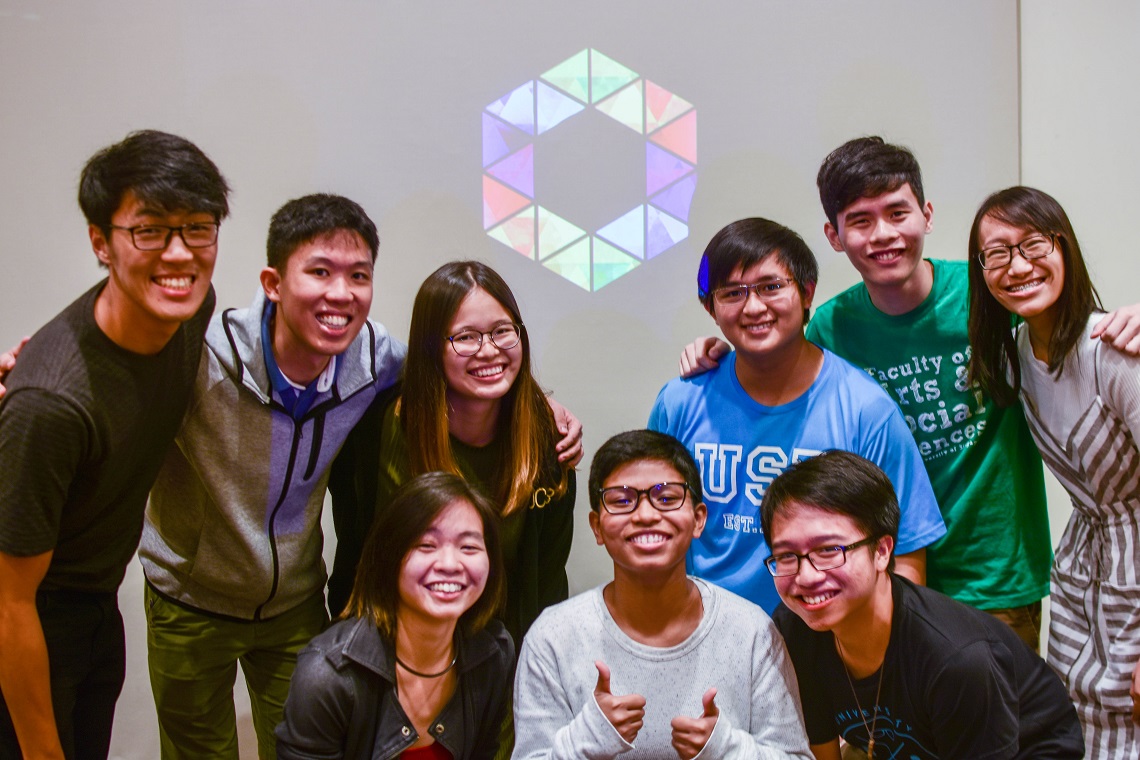
Organisers and Speakers at the 11th Session of USPolymath held on 1 November 2017.
(Clockwise from left to right: Darryl Laiu - organiser, Tham Jun Han, Charmaine Chua, Benedict Lee - organiser, Auyok Sean - organiser, Riley Cheok, Gregory Gunawan, Megan Morais, Stacy Ooi. Organisers not in picture: Brenda Lau, Tan Yin Lin)
Speakers relish the challenge of presenting within the Pecha Kucha constraints. As presenter Riley Cheok (Information Systems + USP, Class of 2020) says, “Every word counts when you only have 20 seconds [per slide] to bring across an idea to your audience,” adding, “For me, I saw it as a way to overcome my fear of public speaking [as well as] share something cool with the community.” Another presenter, Tham Jun Han (Engineering Science + USP, Class of 2018) agrees, saying that “Pecha Kucha is a good format to reflect and cut down on unnecessary ramblings during presentations.”
The challenge of presenting an idea that you are passionate about, to the scrutiny of the USP community, can be daunting. Yet, for many speakers, this feat was made possible with the guidance of the USPolymath organising team. The team did not just handle the logistics of the session, but also mentored the speakers over the course of two rehearsal sessions.
Presenter Megan Morais (Linguistics + USP, Class of 2021) testified to the effectiveness of these rehearsals. “I learnt the importance of being aware of one's audience when [constructing] my presentation. Not only does it need to be relatively jargon-free, but there needs to be flow and appropriate context such that a layman can understand what you are communicating.”
In fact, the organisers put a great deal of effort into helping speakers refine their scripts. For the most recent USPolymath session held on 1 November, they went above and beyond their responsibilities, even organising a last minute third rehearsal for speakers who needed more guidance. For Darryl Laiu and Auyok Sean, organising the USPolymath sessions is very much a labour of love. As Sean says, “What I enjoyed most about USPolymath was not just the wonderful diversity of ideas I got to hear, but [also being able] to help speakers refine their ideas and presentations. At the end of the day, I am glad when a speaker is able to get an idea he or she is passionate about [across to] the USPolymath audience in a clear and succinct way.”
Darryl agrees, adding that “The best thing about organising USPolymath sessions is seeing the speakers so passionate about their ideas. Their ideas almost always start with just a thought, but it always grows into an articulated idea [by the end] and it’s really nice to witness that process.”
Judging by the positive responses from speakers and audience members, the efforts of the organising team have definitely paid off. Audience member Bocai (Computer Science + USP, Class of 2021) was impressed by the most recent session, saying, “It could be seen that the presenters had done their research to provide valuable and convincing insights. It was great that there was something to take away from every talk.” He added that it was “certainly not going to be my last [time]” going for USPolymath events. Another audience member, Ng Hui Ren (Mathematics + Economics + USP, Class of 2021), feels that USPolymath is an interesting and valuable dimension of life in USP. According to him, “I attend every USPolymath session so far because I feel like it's a good break from just academic studying, and there's always interesting things to hear from the speakers.”
USPolymath will resume its sessions in Semester 2, AY 2017/18. A new organising committee will be helming the sessions next year, but we can certainly expect the spirit and ethos of USPolymath to continue. Here’s to many more semesters of being curious, critical and engaged.
Speakers of the 11th Session of USPolymath (1 Nov 2017)
*Click on the photos to watch their presentations
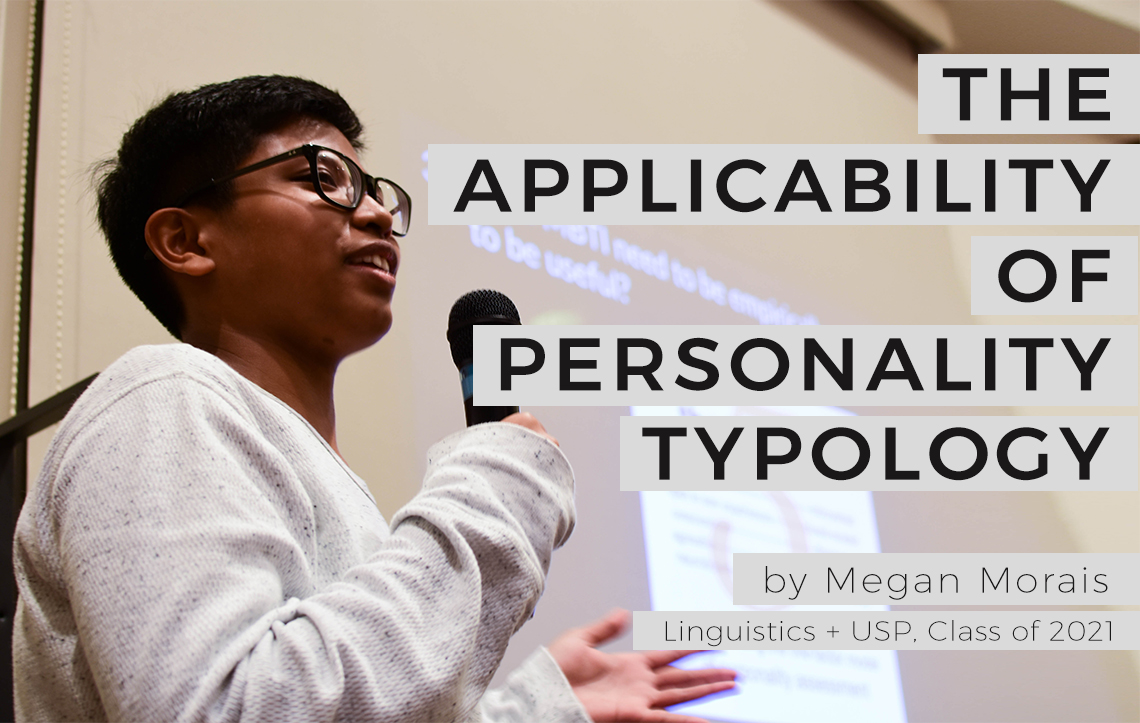
What is one tip you would have for future speakers?
Don't be too perfectionistic about your presentation because it doesn't need to be a perfect crystallisation of research and neither are you expected to know everything about the topic. Just communicate your ideas in a way that's engaging and understandable for your audience and you're set.
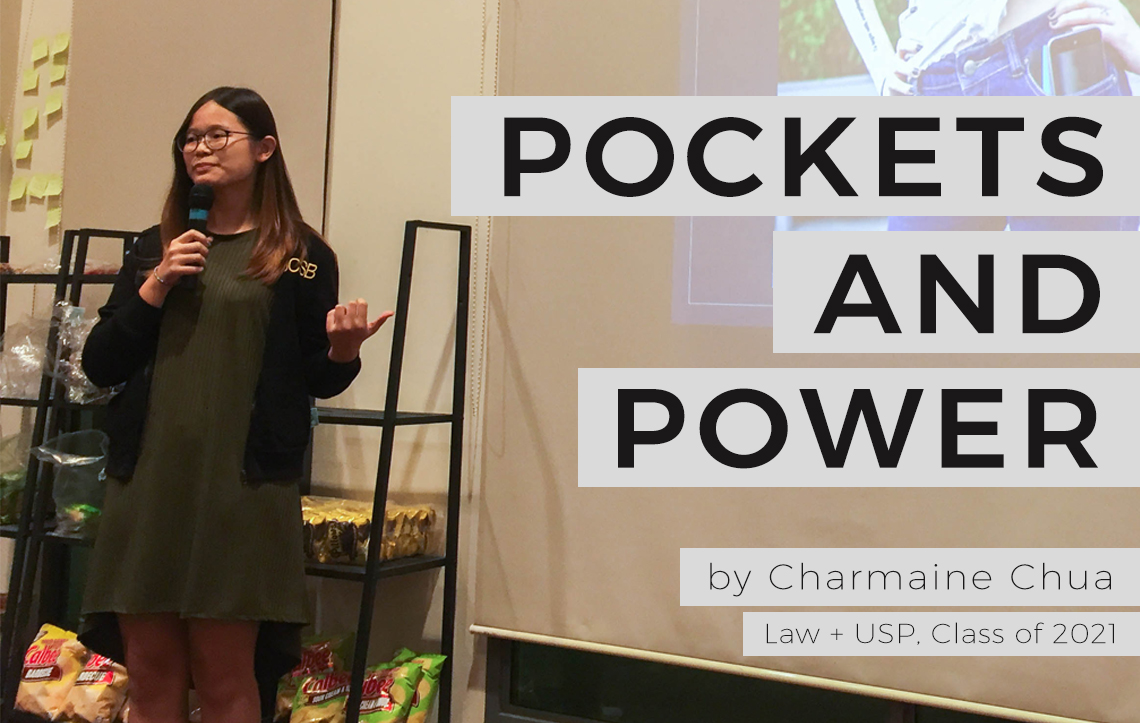
I consider myself a feminist, and wanted to do a presentation on that, but feminism is a big issue that would be almost impossible to condense into 6min40s (although a previous USPolymath presenter, Xingyi, managed to do just that – major props to her!). So I thought it would be interesting to look at the impact of feminism on another of my interests: fashion. I picked pockets in particular simply because I have spent too many years of my life without pockets, and I wanted to know why I was missing out on this amazing invention.
What is one tip you would have for future speakers?
Choose a topic that interests you – you'll be spending a fair bit of time researching it. Don't be too worried about the actual speaking part – the stakes are pretty low (no profs, no grades, just nice friends listening to you). Also, present to as many people as you can before the actual thing to see how you can improve your content and delivery. The restriction of the Pecha Kucha format may seem intimidating at first, but it was a useful guide for organising my presentation. If you have something you want to share with the USP community, just sign up to speak – you can iron out the details later!
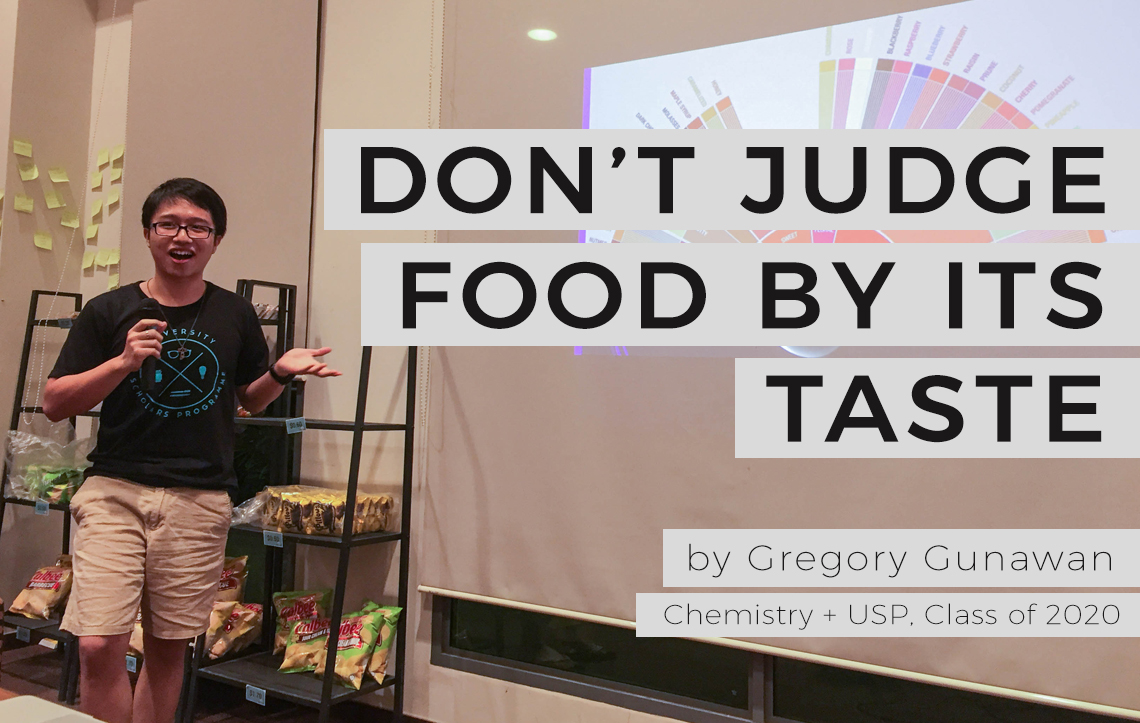
I love food a bit too much! I also just recently came back from the Comparative Rhetoric programme [co-organised by USP and Sciences Po in France] last summer and really wanted to share a bit of what I learnt to the USP community.
What is one tip you would have for future speakers?
I think even though we all went through a crisis of “why on earth are we even doing this” 15 minutes before the actual presentation, I think we’d all do it again. Go through the process and enjoy what you’re doing and what you’re passionate about. At the end of the day, have fun!
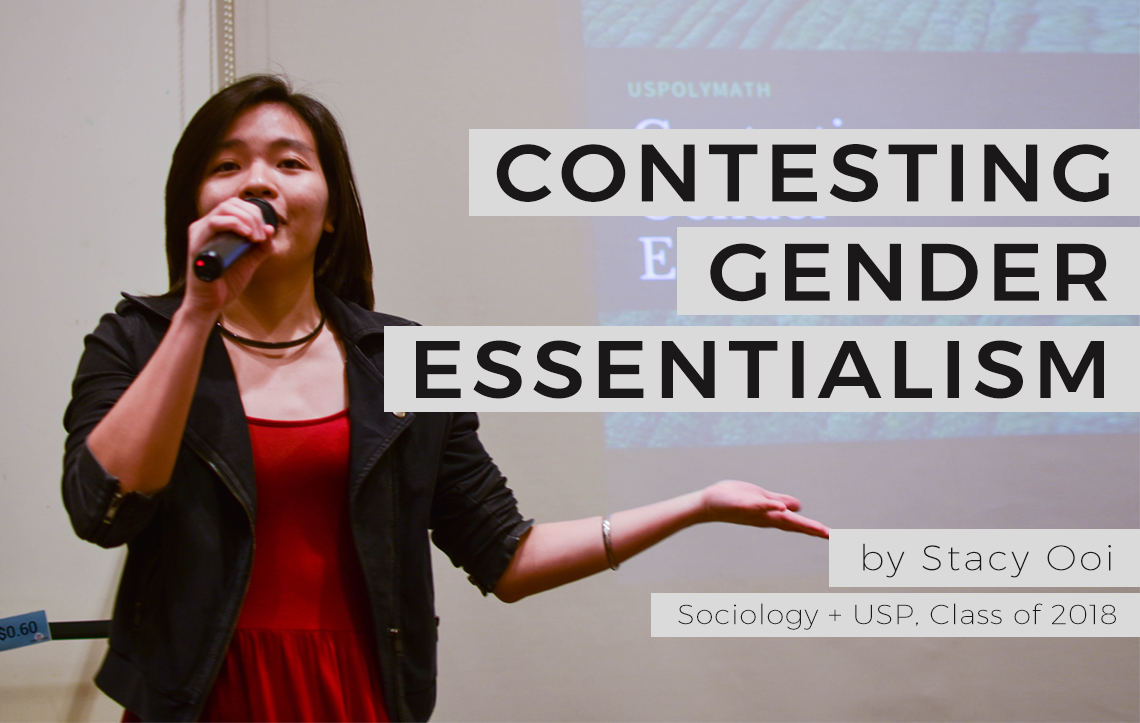
What is one tip you would have for future speakers?
Don’t be afraid to be passionate, don’t be afraid to be partisan. But do be aware that the more controversial your opinions are, the more prepared you have to be to deal with negative or skeptical feedback. It’s just part of the process, and do try your best to honour your critics by engaging with them, even if you don’t agree with everything they say.
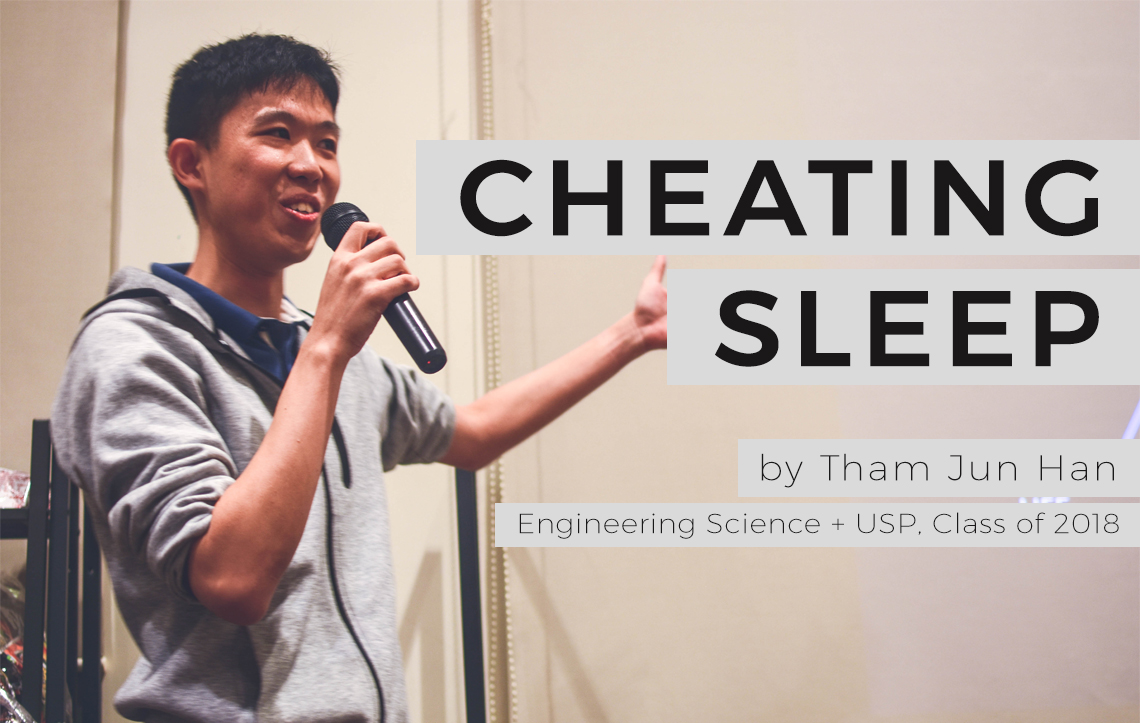
What is one tip you would have for future speakers?
Don't start off by resenting the format and how it limits the way you present, but use the format to reflect on some of your usual presentation practices. It's really worth a try and it was a great experience 🙂
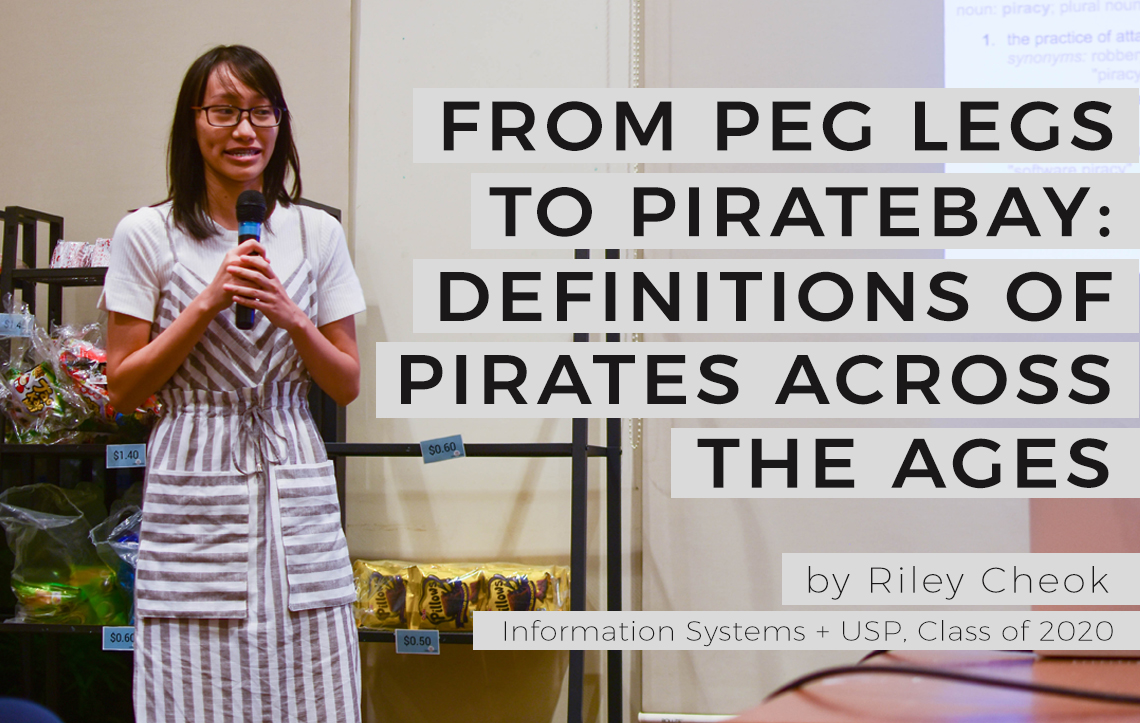
What is one tip you would have for future speakers?
Puns are fun only when you're done. Rhyme helps too if you want.

